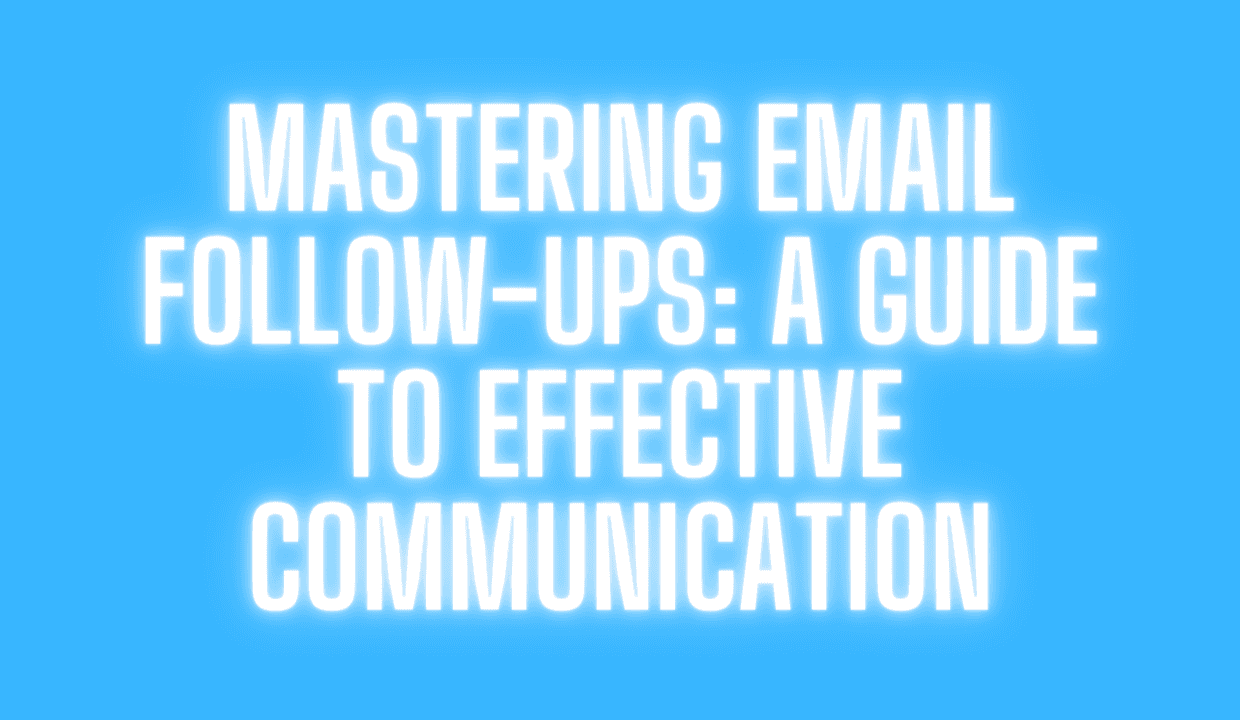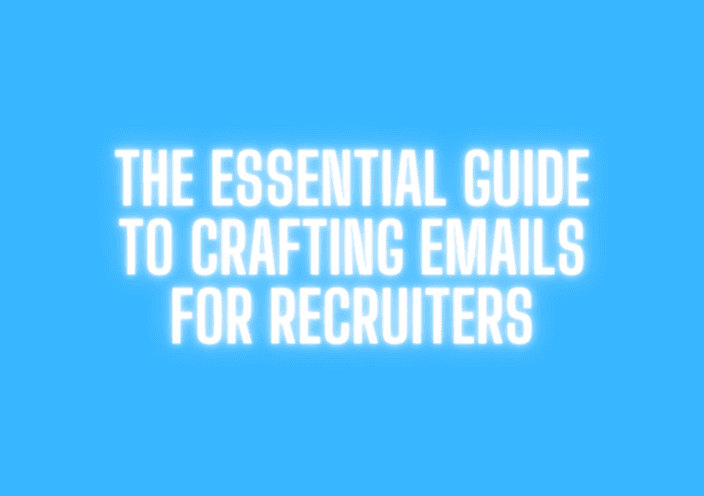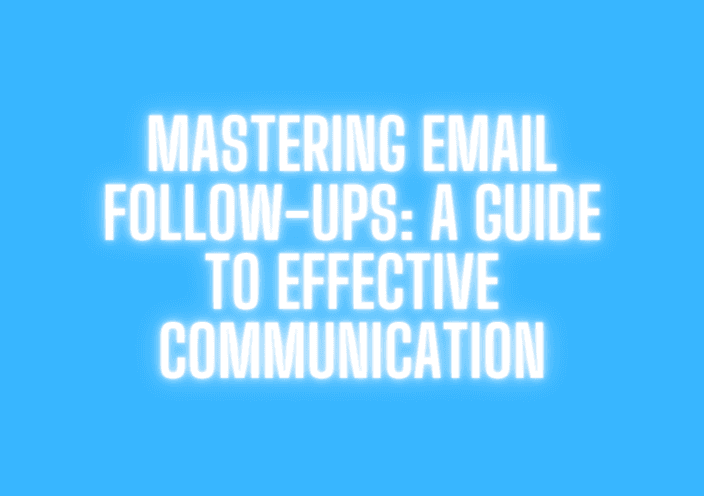
Back to Blog

Mastering Email Follow-ups: A Guide to Effective Communication
Navigating the nuances of email communication, especially when it involves following up, is an essential skill in today's digital age. Here's how you can excel at it.
SalesUpward
Apr 29, 2023
1. Timing Your Follow-Up
Understanding when to follow up is as crucial as the content of your email. It's a balance between being persistent and not overwhelming. Base your timing on the context of your previous interaction and the urgency of the message.
2. Maintaining Professionalism
Always keep your emails professional and polite. Pay attention to details like spelling, grammar, and formatting. A well-structured email that is respectful and considerate can foster positive relationships.
3. Conciseness is Key
Clarity and brevity are essential in follow-up emails. Keep your message focused and avoid unnecessary details. Employ bullet points for better readability and make sure your main points are easily identifiable.
4. Compelling Subject Lines
Your subject line can determine if your email gets opened. Make it short, intriguing, and relevant. Personalize it if possible, and use action words or questions to grab attention.
5. Reasons for Following Up
Provide clear reasons for your follow-up. This could be to clarify a previous discussion, to nudge about a pending task, or to seek additional information. Clearly stating your purpose shows respect for the recipient’s time.
6. Sign Off with Your Details
Include your name, signature, and contact information for easy reference. This not only adds a personal touch but also makes it easier for the recipient to respond.
7. Exploring Follow-Up Alternatives
Email isn't the only way to follow up. Consider alternatives like social media, phone calls, or even handwritten notes for a more personal touch.
8. Respect and Patience
Be respectful and patient in your follow-ups. Understanding and empathy go a long way in maintaining healthy professional relationships.
9. Choosing the Right Tone
The tone of your email should match your message. Stay positive, calm, and clear. Avoid negative language and ensure your email reflects understanding and respect.
10. Acknowledging Responses
When you do get a response, acknowledge it promptly. This shows that you value the other person's time and input.
11. When You Don’t Hear Back
If you don't receive a response, assess the situation calmly. Follow up respectfully and consider using different communication channels if necessary. However, remember to give the recipient ample time to respond.
By following these steps, you can enhance your email follow-up strategies, ensuring your communications are effective, respectful, and productive.












